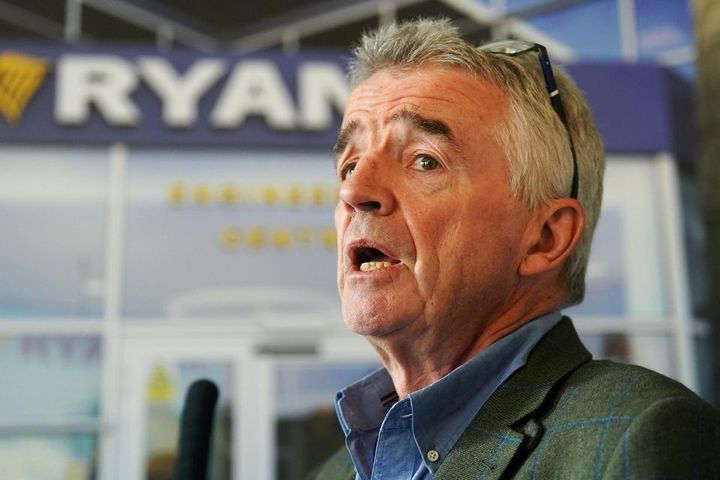
The airline has filed a complaint with the Irish Aviation Authority, saying its comments had been ignored
In September 2023, Dublin Airport, which is controlled by the DAA, published its proposed airport charges for the period March 2024 to March 2025.
In December last year, Ryanair formally lodged a complaint with the Irish Aviation Authority, alleging that Dublin Airport had not fully complied with its obligations under an EU directive regulating the essential features of airport charges in the trading bloc. These rules apply to airports that handle more than five million passengers per year.
The range of airport charges proposed by Dublin Airport for the period 2024-2025 reflected the overall maximum allowable charge per passenger previously set by the Irish Aviation Authority (IAA).
While Ryanair – of which Michael O'Leary is the group CEO – filed complaints with the IAA over the previous setting of total charges at Dublin Airport, the relevant complaints considered by the IAA related to a charge on transfer passengers, the levy on runway movements, the low emission reduction scheme for aircraft and a nitrogen oxide levy.
Today's news in 90 seconds – May 28, 2024
Ryanair wrote a letter to Dublin Airport in October last year, criticizing both the proposed increases in airport charges and what Ryanair claimed were inadequate and unclear consultation documents.
Dublin Airport responded that the airport's aviation charges have always followed the development of the annual price caps and that it had “provided extensive consultation material to support the airport charges process”.
During October, Dublin Airport continued the consultation process with airlines on the proposed charges and released a decision document at the end of November.
Ryanair wrote to Dublin Airport on 4 December claiming that its letters of 6 October and 27 October had gone unanswered by Dublin Airport, and that many of the consultation comments and questions had been excluded from Dublin Airport's 'Summary of Consultation Responses' in its decision document.
The airline has claimed that an alleged “deliberate decision to ignore Ryanair's questions and comments” breaches transparency requirements under the relevant regulations.
Following a formal complaint to the IAA from Ryanair, the authority requested information from Dublin Airport to support its investigation into the airline's complaint.
Ryanair claimed that Dublin Airport's proposed transfer levy discriminates against point-to-point airlines, such as Ryanair, which it claims cross-subsidises transfer passengers.
It also alleged that the proposed runway movement charge was discriminatory in favor of larger aircraft.
Ryanair also disputed the nitrogen oxide tax. She argued that there is no basis for this charge as there is no evidence of a nitrogen oxide problem at Dublin Airport. Ryanair claims a nitrogen oxide charge would deter environmentally friendly aircraft from Dublin Airport, given its interaction with other pollutants.
In a draft decision, the IAA declared Ryanair's complaints well-founded.
The authority said that in relation to the four specific issues complained about by Ryanair and considered by the IAA, it has not been “sufficiently demonstrated” that they are non-discriminatory and justified as a complaint under applicable law.
“These rate modulations/differentiations should be reassessed by Dublin Airport with a view to addressing the various issues of transparency, relevance and objectivity,” the IAA said in its draft decision.
However, it is proposed that in the meantime there will be no retroactive action or adjustments to the charges, particularly in relation to the charges currently in force for summer 2024. The reassessed charges should be in force for the coming winter season. suggested.
The DAA, led by CEO Kenny Jacobs, has been asked for comment.
